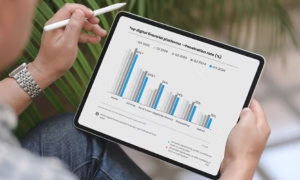Self-invested personal pensions (SIPPs) are a type of personal pension scheme that enables you to make your own investment decisions from a broad range of options approved by HM Revenue and Customs (HMRC).
As SIPP investments grow, you remain free from income tax and capital gains tax. In addition, you also receive tax relief on your SIPP contributions, meaning the government gives you back the tax you would have paid on the income you’ve earned. This is given at the basic income tax rate of 20%.
For example, if you pay £200 into your pension, a government top-up of £40 is paid straight into your plan.
While tax-free growth and tax relief are fantastic benefits, SIPP pensions also offer you much more control and flexibility over your pension pot, as you have the final say over how much goes into your pot and where it’s invested.
The government-approved investment options you can add to your SIPP include shares, funds, bonds, commercial property, and exchange-traded funds (ETFs). This article will break down these tax-free investment options.
Shares
SIPP investors can choose to hold individual company shares. Corporations sell shares to investors as units of stocks to represent ownership and raise capital for the company. Investors can find stocks listed on the following:
- UK stock exchanges such as the London Stock Exchange and the Alternative Investment Market.
- Overseas stock exchanges such as the Shanghai Stock Exchange and the New York Stock Exchange.
Some SIPP providers apply the same stock exchange restriction for foreign shares, while others allow you to hold almost all overseas stocks.
(Image Source: IG)
Funds
Funds can include unit trusts, investment trusts, and open-ended investment companies (OEICs). All of these allow investors to put their money with others to invest in a diversified portfolio managed by professional fund managers.
Bonds
You may have seen the Premium Bonds offered by NS&I or the fixed-rate savings accounts from banks and building societies.
However, in an investment context, bonds usually refer to fixed-interest securities such as government bonds or gilts and corporate bonds. Unlike Premium Bonds and savings accounts, your capital can be at risk.
Commercial Property
Through most SIPP schemes, you can invest in commercial property such as offices, industrial units, hotels, and retail units.
You can do this by directly buying a commercial property if you have the right amount of money in your SIPP, buying through a commercial mortgage, transferring ownership of a property you already own into your SIPP, or investing in a property fund, which works by pooling money from multiple investors to buy and sell properties.
However, commercial property investments have additional complexities and often require financial advice. In addition, commercial property can be illiquid and difficult to sell.
It’s important to note that you are usually not allowed to invest in residential property such as houses, apartments, and villas.
Exchange-Traded Funds
Exchange-traded funds (ETFs) are a popular type of collective investment that provides access to a wide range of markets. With ETFs, you can build a diversified but low-cost portfolio.
However, there are different types of ETFs with varying levels of risk, including:
- Physical ETFs: These allow you to invest directly in whatever the ETF tracks. However, when you invest in a physical ETF, you only buy a stake in the ETF itself, not the index being tracked. Physical ETFs are easier to understand and less vulnerable to hidden risks.
- Synthetic ETFs: These allow you to purchase swaps, which promise to pay the same returns as the index or underlying investment they track. They allow you to invest in markets that might be hard to access otherwise, such as perishable commodities or stock markets that restrict foreign investment. Synthetic ETFs are the riskier option due to the counterparty risk, which means if the investment bank that has sold the swap to the ETF can’t meet its obligations, you could lose out.
Understanding Your SIPP Options
If you are financially able to, spreading your money across the different investment options explored above can help you expand your portfolio and balance out the ups and downs of the investment market.




































